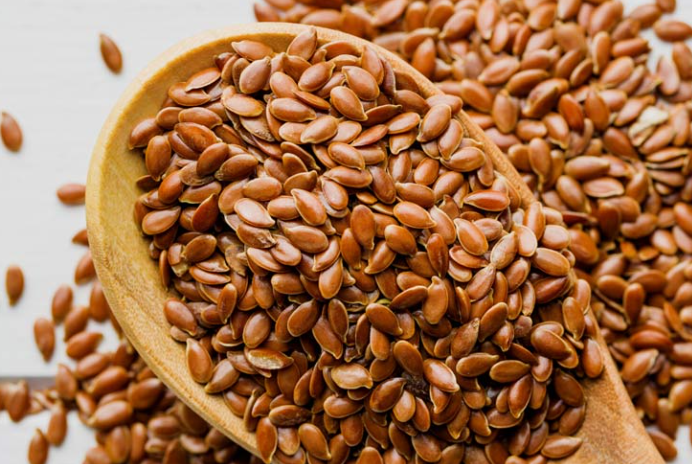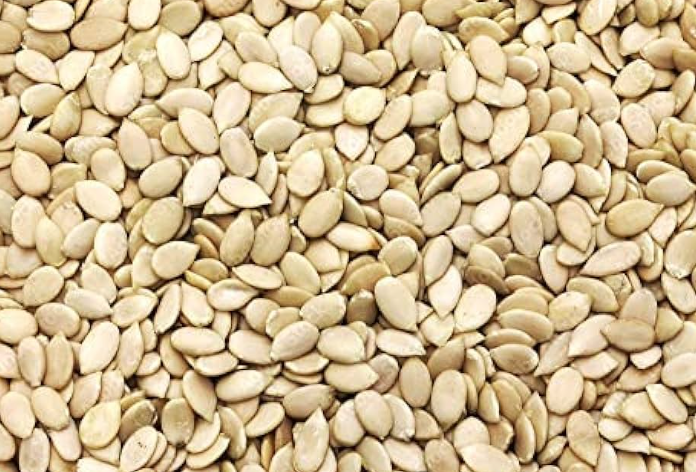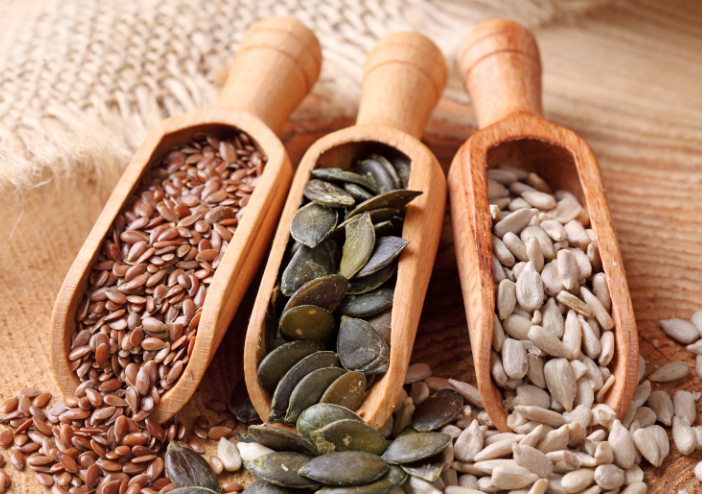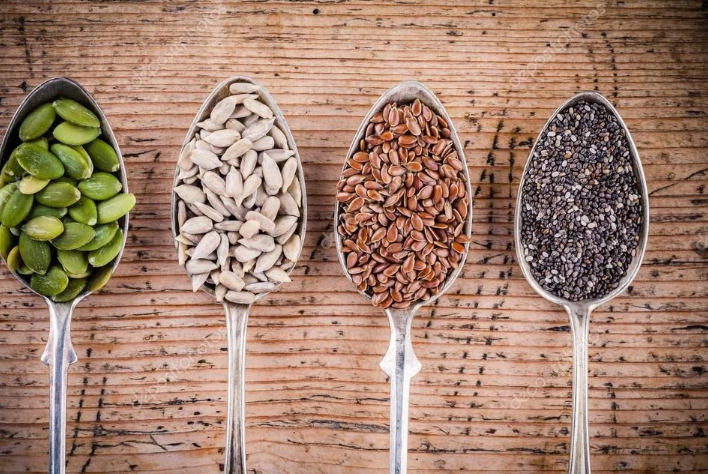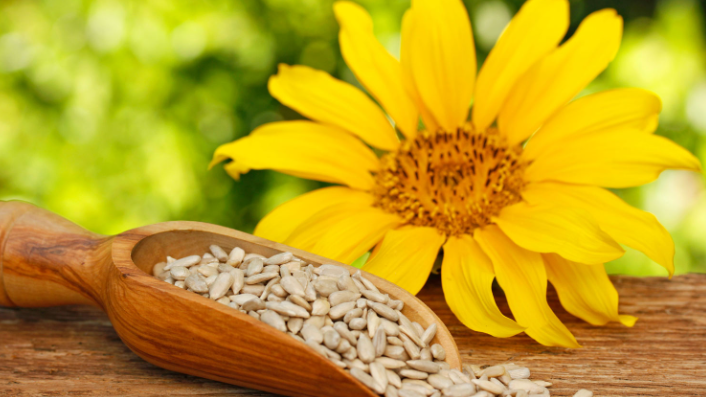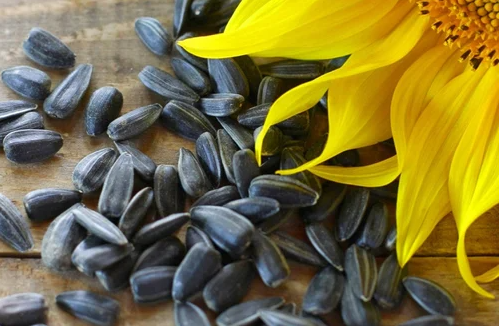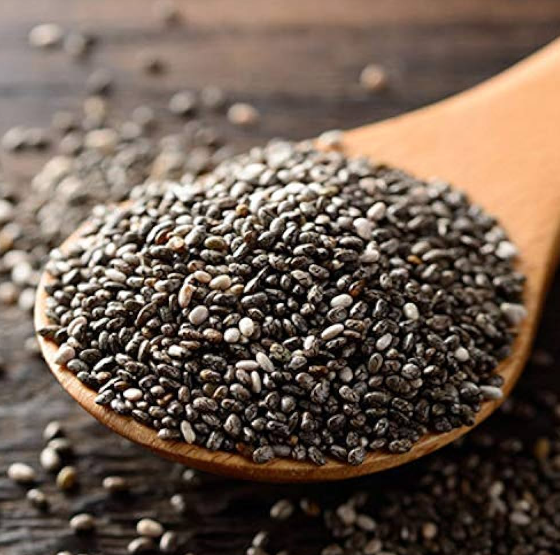Edible Seeds
nutrition value and uses of chia seeds:
Nutrition Value:
Chia seeds are tiny powerhouses packed with essential nutrients. Here’s a breakdown of their nutritional content per ounce (28 grams):
- Calories: 138
- Protein: 4.7 grams
- Total Fat: 8.7 grams (including heart-healthy omega-3 fatty acids)
- Carbohydrates: 12 grams (of which 83% is fiber)
- Fiber: 9.8 grams
- Magnesium: 95 mg
- Calcium: 178.9 mg
- Iron: 2.2 mg
- Potassium: 115 mg
- Vitamin C: 0.5 mg
- Vitamin A: 15.3 amu
- Sodium: 5 mg
Health Benefits and Uses:
- Heart Health: Chia seeds are an excellent source of fiber, which can help reduce LDL cholesterol levels and support heart health.
- Digestive Health: Their high fiber content aids in healthy bowel function and may promote gut health.
- Energy Boost: Chia seeds can boost energy levels due to their nutrient density.
- Blood Pressure Regulation: The omega-3 fatty acids in chia seeds may help lower blood pressure.
- Blood Sugar Control: Chia seeds’ soluble fiber can help stabilize blood sugar levels.
- Weight Management: Their fiber content promotes satiety and may aid in weight loss.
- Antioxidants: Chia seeds contain antioxidants that protect against oxidative damage.
How to Use Chia Seeds:
- Soak them in water or juice to create a gel for puddings or drinks.
- Sprinkle them on cereal, oatmeal, yogurt, or salads.
- Use them as a thickening agent in sauces.
- Add them to baked goods.
Experiment with chia seed pudding recipes
the nutrition value and uses of egusi seeds:
Nutrition Value:
Egusi seeds, also known as melon seeds, are botanically known as Citrullus colocynthis. These seeds are highly nutritious and versatile, popular in many African and Middle Eastern countries. Here’s a breakdown of their nutritional content:
- Protein: Egusi seeds are a rich source of protein, crucial for muscle repair and growth.
- Omega-6 Fatty Acids: Similar to most plant oils, egusi seeds mainly contain unsaturated fatty acids.
- Antioxidants: Egusi seed oil contains natural antioxidants like vitamin Eand ß-carotene.
- Minerals: Potassium and calcium are essential minerals present in egusi seeds, known to regulate blood pressure.
Health Benefits and Uses:
- Diabetes Prevention: Egusi seeds may help prevent diabetes by lowering HbA1Cand fasting blood glucose levels in diabetic patients. Additionally, egusi seed oil has shown blood sugar-lowering effects in mice with diabetes.
- Lipid Reduction: Elevated levels of lipids (such as triglycerides and LDL cholesterol) are risk factors for heart disease and diabetes. Ground egusi seeds can lower triglyceride and cholesterol levels in patients with high blood lipid levels.
- Bacterial Infection Prevention: Egusi seeds have antimicrobial properties and may help prevent bacterial infections caused by Escherichia coli, Pseudomonas aeruginosa, and Salmonella typhimurium.
Culinary Uses:
- West Africans grind egusi seeds before cooking them with leafy green vegetables, meat, palm oil, herbs, and seasonings to form a thick soup.
- Nigerians typically eat egusi with éba(a dough made from dried cassava), pounded yam, or fufu (another dough made from cassava).
nutrition value and uses of flax seeds:
Nutrition Value:
Flax seeds (also known as linseeds) are small oil seeds packed with essential nutrients. Here’s a breakdown of their nutritional content per tablespoon (10 grams) of whole seeds:
- Calories: 55
- Water: 7%
- Protein: 1.9 grams
- Carbohydrates: 3 grams
- Sugar: 0.2 grams
- Fiber: 2.8 grams
- Fat: 4.3 grams (including heart-healthy omega-3 fatty acids)
- Magnesium: 9.8 mg
- Iron: 0.1 mg
- Calcium: 6.4 mg
- Potassium: 20 mg
- Sodium: 1 mg
Health Benefits and Uses:
- Heart Health: Flax seeds are a good plant-based source of omega-3 fatty acids, which may help improve cholesterol levels and reduce inflammation.
- Digestive Health: The high fiber content in flax seeds promotes regularity, prevents constipation, and supports gut health.
- Blood Sugar Control: Soluble fiber in flax seeds helps regulate blood sugar levels.
- Weight Management: Flax seeds’ fiber content promotes satiety and may aid in weight loss.
- Antioxidants: Flax seeds contain antioxidants that protect cells from damage.
Culinary Uses:
- Ground Flax Seeds: Grinding flax seeds is the best way to unlock their health benefits. Add them to smoothies, yogurt, oatmeal, or baked goods.
- Flaxseed Oil: Flaxseed oil is another option, rich in omega-3s. Use it in salad dressings or drizzle over dishes.
